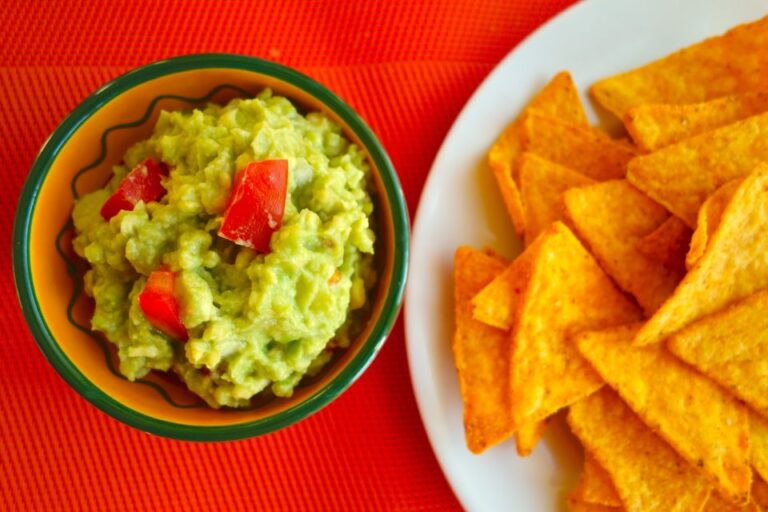How to Stop Snacking Mindlessly
Our parents’ generation believed that eating between meals was bad for your waistline, so they spent a lot of time sharing tips about how to stop snacking. However, new research shows that between-meal snacking may actually support weight loss by helping:
- Balance blood sugar levels
- Keep cravings at bay
- Boost metabolism
- Reduce overeating at meal times.
Still, there’s a right way and a wrong way to snack.
Healthy, calorie-controlled snacks containing protein, fruits, vegetables, and fiber-rich grains can help you stay on track with your weight loss. However, unhealthy snacking can also completely derail your diet, especially if you find yourself mindlessly finishing off a bag of chips or cookies due to boredom or habit.
If you’re in the latter group, here are nine tips for how to stop snacking mindlessly:
1. Eat Fruit
Bad habits such as late-night snacking or giving in to afternoon sweet cravings are often fueled by a desire for sugar or dessert.
If you’re looking for how to stop snacking at night or how to stop snacking at work, a small piece of fruit can be a great way to satisfy this craving with fewer calories while also adding to your daily fruit quota and topping up your vitamins and minerals.
2. Drink Herbal Tea
Often, a desire to snack can be satisfied just by changing the flavor in your mouth. Stop snacking by making a cup of warm mint, green, or chamomile tea, which can stave off a sweet craving without actually contributing any calories.
3. Treat Snacks Like Mini Meals
When we’re in “snack mode”, we often ignore standard eating practices like sitting at a table, instead opting to stand in the kitchen or watch TV while munching on a bag of chips. However, by not consciously acknowledging what you’re consuming, you make it much more likely that you’ll overeat.
If you’re looking for ways to stop snacking at night, taking the time to put your snack on a plate is a great strategy. Also, make an effort to focus on your snack—sit at the table, turn off the TV, and put down your phone. You’ll be much more likely to feel satisfied if you eat mindfully and consciously.
4. Brush Your Teeth
Has a dentist ever told you to brush your teeth after a meal to avoid tooth decay? Brushing your teeth after meals is good for dental hygiene, and it’s also a beneficial strategy to reduce (or stop) snacking.
When you have a newly clean, fresh mouth, you’re less likely to reach for a snack out of boredom. Plus, since toothpaste tends to make food taste bad, brushing your teeth provides an extra psychological barrier and is a great way to stop snacking at work. And, bonus: you’ll have minty-fresh breath all day!
5. Measure-Out Portions
When you’re on a wellness journey, it’s important to treat yourself but indulge in moderation.
Instead of sitting down with the whole packet of anything (and likely eating it all, or at least way more than a serving size), serve yourself a reasonable portion and then put the box back in the cupboard or fridge. When you have a limited amount of your favorite snack, you can enjoy it and savor it more fully. Remember, this isn’t the last time you’ll ever have a treat.
This trick for stopping snacking at night is actually easier than it sounds. While it may take extra concentration and discipline to practice self-control when portioning out your treat, if you put your mind to it, you can learn to stop yourself when you’ve had enough.
6. Slow Down
The slower you eat, the better. Eating slowly gives your stomach time to tell your brain that you’re full and tells your brain to stop eating.
Practice slowing down by choosing healthy snacks like oranges or pomegranates, which take some time to peel, or in-shell nuts like pistachios that take a bit of effort to break open. Stop snacking on ready-to-eat processed snacks that are high in calories and easy to gobble down in a matter of seconds. Giving yourself permission to slow down will probably help you eat less over time.
7. Break Bad Habits
One of the most important steps to stopping snacking is breaking detrimental, often subconscious, habits. For example, do you often grab a box of crackers or a bag of chips before you head into the living room to watch TV? Or do you always grab a cookie when you walk in the door?
Sometimes, one of the most important—albeit hardest—parts of breaking your snacking habit is interrupting the automatic association in your head. If you need something to keep your hands busy when you would usually be snacking, try adopting a new habit like painting your nails while you watch TV or washing dishes as soon as you walk in the door.
Better yet, stop snacking and replace mindless eating with a new healthy habit like going for a walk after dinner or working out during commercial breaks (or between episodes) while watching TV.
8. Stay Hydrated with Water
Drinking enough water is a simple and effective way to avoid excessive eating. Not only is thirst often mistaken for hunger, but water can also help fill your stomach during the extra time it takes for the hunger signals to let your brain realize you’re full.
Drinking flavored water or adding a slice of lemon to your glass can make water more interesting and distract your taste buds away from the desire to eat.
Steer clear of sugar-sweetened beverages like soda, fancy coffees, energy drinks, and sweet tea when you’re working hard to lose weight… and in general. These drinks contribute hundreds of extra calories and little nutritional value. Instead, choose water or flavored water to stay hydrated.
9. Control Your Environment
If you know you struggle with self-control, the most effective way to stop snacking needlessly is to keep tempting snacks out of the house. If a certain food is your personal kryptonite, stop buying it—you can’t eat what’s not there! If you want it bad enough (and it’s not just a passing craving or form of entertainment), you can always go out and buy it later.
Instead, keep healthy snacks like apples or oranges out on the counter for easy access if hunger strikes.
The key to successful weight loss is to stop doing what you’ve done to gain weight and start making a series of small changes to lose weight once and for all.







